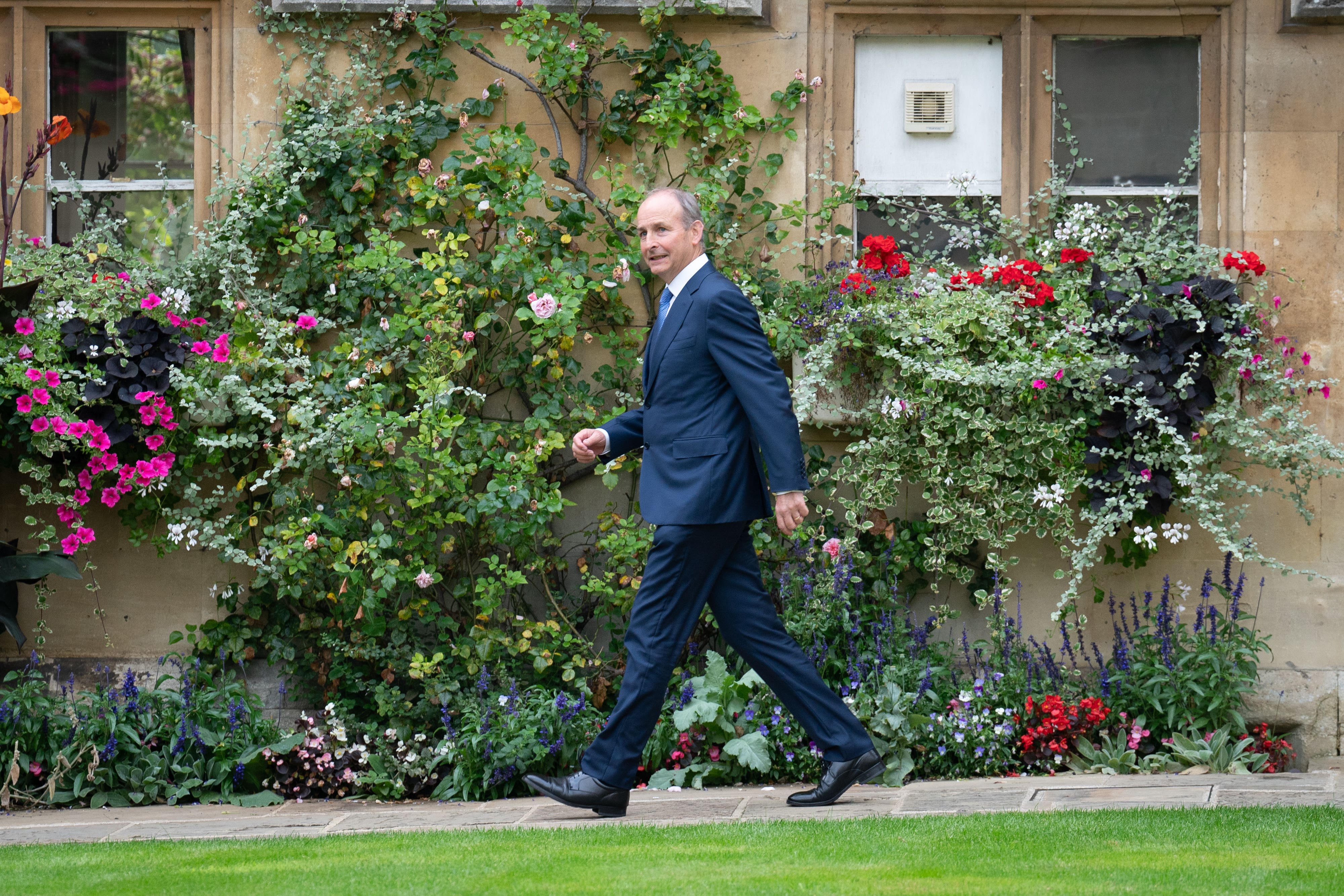Martin defends plan to increase number of TDs amid Irish boundaries review
The constituency review was prompted by a boom in the population to 5.15 million.

Your support helps us to tell the story
From reproductive rights to climate change to Big Tech, The Independent is on the ground when the story is developing. Whether it's investigating the financials of Elon Musk's pro-Trump PAC or producing our latest documentary, 'The A Word', which shines a light on the American women fighting for reproductive rights, we know how important it is to parse out the facts from the messaging.
At such a critical moment in US history, we need reporters on the ground. Your donation allows us to keep sending journalists to speak to both sides of the story.
The Independent is trusted by Americans across the entire political spectrum. And unlike many other quality news outlets, we choose not to lock Americans out of our reporting and analysis with paywalls. We believe quality journalism should be available to everyone, paid for by those who can afford it.
Your support makes all the difference.Ireland’s deputy prime minister has defended plans to increase the number of the country’s politicians, arguing they are not “an expense we can’t afford”.
Micheal Martin was in Oxford on Friday ahead of attending the British-Irish Association conference.
His comments come after the Electoral Commission recommended the number of TDs should be increased from 160 to 174 following a review of the country’s boundaries.
The constituency review was prompted by a boom in the population to 5.15 million, as shown in Census 2022 – an increase of 8% in four years.
Democracy is not perfect. I really don't like the attitude of are we willing to pay for more politicians?
As the Irish constitution says there needs to be one TD to represent every 20,000 to 30,000 people, the constituency boundaries needed to shift.
Asked if the Irish people want to pay for more TDs, Mr Martin said that “democracy is not perfect”.
He said: “I am a democrat and I take a different view to that approach, in the sense that people value democracy in Ireland … for over 100 years now a modern democracy.
“It has worked for Ireland and continues to work.
“Democracy is not perfect. I really don’t like the attitude of are we willing to pay for more politicians?”
Mr Martin said he had just come back from an EU conference in Spain, where he had watched presentations from west African politicians who would “dearly love” to have their politicians back following a series of coups in the region.
“I’ve just come from the Foreign Affairs Council of the European Union in Toledo yesterday and we had a presentation from the foreign minister of Niger and the president of ECOWAS (Economic Community of West African States) who were describing the coup d’etats in that region, and in particular the Niger situation, but obviously it has been followed by Gabon,” he said.
“That’s a government in Niger that was really working democratically, that was getting on top of a lot of situations … and they would dearly love to have their politicians back.
“So, we need to be very careful about some of the disparaging remarks, or sort of a line of thinking that somehow politicians are an expense that we can’t afford.
“I think that would be very dangerous indeed.”
The boundary review follows population increases across nearly all of Ireland’s constituencies.
Indeed, of the country’s current 39 constituencies – nine three-seaters, 17 four-seaters and 13 five-seaters – all but one have seen population increases which put them at more than 30,000 people per TD, with Limerick County being the exception.
According to Irish electoral laws, each constituency should have between three and five elected members, with three-seaters seen as advantageous to large political parties and five-seaters an easier job for smaller parties and independents to get over the quota threshold.
Constituency reviews are meant to avoid breaching county boundaries where possible, to follow geographical features and to maintain the continuity of electoral areas as much as they can.
If approved, the increase in TDs will be the largest increase since 1980.